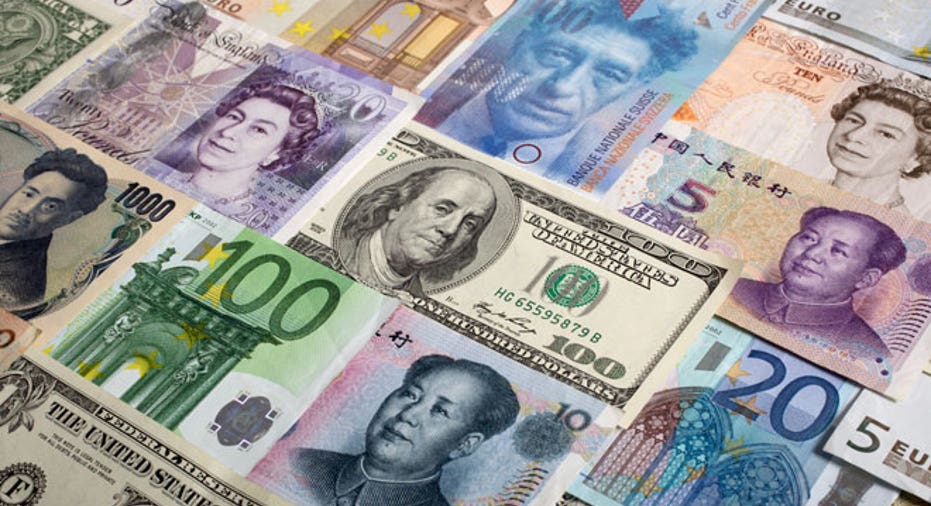Dollar Worries? How to Invest in Other Currencies

If you’re wringing your hands about prospects for the U.S. dollar, take some comfort: You’re part of a large club.
With the Federal Reserve essentially printing money to help the U.S. out of the Great Recession, while keeping interest rates low, there’s not a lot of robust dollar-defending going on.No wonder the buck is hitting three-year lows against major currencies. But these days, even if you’re not a gold bug, you’re not necessarily locked into the greenback. With the advent of currency ETFs and banks that let you hold foreign currency certificates of deposit, you can broaden your cash holdings with the click of a mouse.
“Currencies used to be exotic, but now investing in them has become much easier,” says Mike Rawson, an ETF analyst with Chicago-based fund research firm Morningstar. “You can go into your brokerage account and purchase currency exposure just like you would a stock.”Rawson suggests keeping your currency plays to 5% of your portfolio or less, since it’s a relatively volatile niche. After all, there’s no guarantee that the U.S. dollar is destined to fall. It’s still the world’s reserve currency, and in tumultuous times, investors tend to flock to it as a safe haven.
But if you’re fretting about the dollar, Rawson says you’re not just being paranoid: There’s a solid rationale for being skittish. “There are good reasons why the U.S. might turn a blind eye to currency strength,” Rawson says. “A decline makes your exports more attractive, it makes imports more expensive, and it lowers the value of the total debt you have outstanding.”So how to hedge against a potential dollar drop? The safest strategy is to buy a basket of other currencies, so you aren’t hostage to the political and interest-rate particulars of a single country. Morningstar’s Rawson likes PowerShares DB US Dollar Index Bearish, which holds a basket of currencies like the Euro and the Yen. For a more targeted play, he recommends CurrencyShares Euro Trust.
Don’t go overboard, though. Just because you can now bet your entire portfolio on the future of the Brazilian real, doesn’t mean you should. This is speculative stuff, in a highly volatile, $4-trillion daily market that’s dominated by large institutions. And foreign cash is still cash, which means your upside potential is limited by how much other currencies fall.
So unless you’re the next incarnation of George Soros, put aside the grand visions of yourself as a currency day-trader, making millions from forex. If you’re a mom-and-pop investor who is truly concerned about the dollar, then you might consider slotting a small portion of your cash holdings into other currencies.
You could hold foreign currency CDs from Florida-based EverBank, for instance, which offers rates on everything from the Australian dollar to the Indian rupee. “You get FDIC backing, and you get foreign currency exposure as well,” says Kirk Kinder, a financial planner and owner of Picket Fence Financial in Bel Air, Maryland, who often uses EverBank CDs for his clients. “So if you’re getting 4% on an Australian dollar CD, not only are you getting the 4%, you get an additional amount if the U.S. dollar depreciates.”
Of course, if you’re still reticent about dabbling in forex, relax: You might already be covered without even realizing it. That’s because megacap American multinationals already hedge currency issues as a matter of course, earning much of their profit overseas (and often keeping it there). If you own the S&P 500, then, you’re already essentially doing some currency hedging. And if you own international stocks denominated in foreign currencies, then you’re already holding an exchange-rate play with upside potential as well.
But Colorado retiree Chuck Hooper likes the more direct route, of owning EverBank foreign currency CDs. So much so he now has 17 of them, investing in everything from the Canadian dollar to the Brazilian real. “With all the debt we’re accumulating, I see heavy inflation coming, and I see other countries pulling away from the U.S. dollar,” says the 80-year-old former business owner. “I’m very concerned — and that’s why I think foreign currency CDs are the right path.”



















